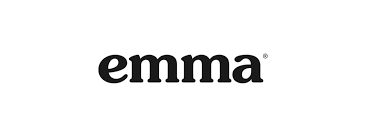Welcome to the ultimate showdown in email marketing tools – Emma vs MailUp. Whether you’re a seasoned marketer or just starting out, the choice of the right email marketing tool is crucial in charting the course of your digital marketing strategy. Today, we’re diving deep into a comparison between Emma Email Marketing Tool and MailUp, two of the most prominent players in the field. Our goal? To arm you with all the information you need to make an informed decision. Let’s start this journey by exploring a key aspect that often influences the choice
| Emma Email Marketing Tool | MailUp |
|---|---|
 |  |
| G2 Score – 4.0 out of 5 stars | G2 Score – 3.7 out of 5 stars |
| TrustRadius Score – 8.6/10 | TrustRadius Score – 6/10 |
User Experience and Interface
The Pillar of Email Marketing Tools
The user interface of an email marketing tool is more than just a dashboard; it’s the environment where your marketing ideas come to life. A seamless and intuitive interface can empower your campaigns, while a complicated one can impede them. Let’s see how Emma and MailUp stack up in providing a user-friendly experience.
Emma: Simplicity and Elegance Combined
Emma is renowned for its clean, intuitive interface, making it an excellent choice for those who appreciate simplicity in their tools. The platform is designed to be user-friendly, ensuring that even those new to email marketing can navigate it with ease.
Crafting emails in Emma is a delight, thanks to its drag-and-drop editor. It simplifies the design process, allowing you to create professional-looking emails effortlessly. Whether you’re a design novice or a pro, you’ll find Emma’s editor accommodating, with its range of customizable templates that help maintain your brand’s consistency.
When it comes to managing your audience and tracking the performance of your campaigns, Emma makes it straightforward. The platform offers easy-to-use tools for segmenting your audience and provides clear, actionable analytics. This approach to campaign management ensures you can make data-driven decisions without being overwhelmed.
MailUp: Robust and Feature-Rich
MailUp takes a different approach, offering a feature-rich platform that caters to users who seek depth and flexibility in their email marketing tool. While it offers a range of advanced features, the interface might have a steeper learning curve compared to Emma. However, for marketers who crave comprehensive control over their campaigns, this complexity is a small price to pay.
MailUp’s email editor offers extensive customization options, catering to those who want more control over their email designs. For marketers who enjoy crafting highly personalized and intricate email campaigns, MailUp provides the tools to bring those visions to life.
In terms of campaign management and analytics, MailUp offers comprehensive tools. The platform provides detailed insights into your campaign’s performance, enabling a data-driven approach to email marketing. This depth of analytics is ideal for those who want to meticulously track and optimize their marketing strategies.
Pricing and Plans
Aligning Cost with Marketing Goals
A crucial factor in choosing the right email marketing tool is its pricing and the value it offers for that cost. It’s essential to find a balance between the functionalities you need and the investment you’re willing to make. Let’s delve into the pricing structures of Emma and MailUp to see which offers a better fit for your financial plan.
Emma
- Pricing is typically tiered based on features and list size:
- Pro Plan: Offers automation, segmentation, and analytics. Pricing usually starts at around $89/month.
- Plus Plan: Includes additional features like landing pages and A/B testing. Pricing is higher and usually requires a quote from Emma.
- Enterprise Plan: Custom pricing for advanced needs like custom integrations and dedicated support.
MailUp
- Pay Per Speed Plans: MailUp’s pricing is based on sending speed rather than the number of contacts. Starts at around $65/month for the slowest sending speed.
- Monthly Plans: Also offers traditional monthly plans based on the number of emails sent, with prices starting at around $85/month for up to 400,000 sends.
- Prepaid Credits: Alternatively, you can buy prepaid credits for sending emails without a monthly fee.
- All plans include features like email automation, transactional emails, and analytics.
Emma: Flexible Pricing for Various Business Sizes
Emma’s pricing model is designed with versatility in mind, accommodating businesses of different sizes and marketing needs. This flexible approach allows you to select a plan that best aligns with your current requirements, providing scalability as your marketing efforts grow.
For smaller businesses or those new to email marketing, Emma’s entry-level plans offer a cost-effective starting point. These plans typically include essential features like basic email creation tools, segmentation, and analytics – the core necessities for initiating an effective email marketing strategy.
As your needs expand, Emma offers higher-tier plans that come with more sophisticated features, such as advanced automation, more detailed analytics, and larger sending capacities. However, businesses should be mindful of the cost increases associated with these advanced features. Evaluating the return on investment for these additional capabilities is key to ensuring that you choose the most cost-effective plan for your business.
MailUp: Competitive Pricing with Comprehensive Features
MailUp presents a competitive pricing model that appeals to a wide range of businesses, especially those looking for a comprehensive set of features from the get-go. Their plans are structured to offer a balance between affordability and a robust suite of email marketing tools.
MailUp’s base plans are often seen as more budget-friendly, providing access to a broad set of features at a lower starting price compared to Emma. This can be a significant advantage for startups or small to medium-sized businesses that need to maximize their marketing budget without compromising on the tool’s capabilities.
As with Emma, scaling up to MailUp’s more feature-rich plans involves higher costs. It’s important for businesses to consider their specific requirements and expected email volume to determine the most cost-effective plan within MailUp’s pricing structure.
Email Automation and Campaign Management
Driving Engagement and Success
Email automation and effective campaign management are pivotal in maximizing the impact and efficiency of your email marketing efforts. Let’s examine how Emma and MailUp handle these essential features, comparing their capabilities to streamline your marketing strategy.
Emma: Intuitive Automation for Effective Campaigns
Emma’s email automation is designed with a focus on user-friendliness and effectiveness. It’s ideal for marketers who want to create impactful campaigns without delving into overly complex tools. The platform offers intuitive tools for setting up automated email sequences, simplifying the process of engaging with your audience.
With Emma, you can easily automate various types of emails, such as welcome messages, birthday greetings, or targeted promotions based on customer behavior. This automation ensures that your communications are timely and relevant, enhancing the connection with your audience.
When it comes to campaign management, Emma provides a straightforward analytics dashboard. It offers a clear view of key performance indicators like open rates, click-through rates, and subscriber engagement. These insights are invaluable for understanding the effectiveness of your campaigns and fine-tuning your strategies for better results.
MailUp: Advanced Automation for Comprehensive Management
MailUp offers a more robust set of tools for email automation and campaign management, catering to businesses that require a deeper level of control over their email marketing strategies.
The platform allows for the creation of complex, multi-step email sequences, providing the tools needed to craft highly personalized and dynamic campaigns. This level of customization is particularly beneficial for marketers aiming to create sophisticated email journeys tailored to specific audience segments.
In terms of campaign management, MailUp provides comprehensive analytics and reporting tools. These offer in-depth insights into the performance of your campaigns, enabling a data-driven approach to optimize your email marketing efforts. This detailed analysis is crucial for businesses that rely on precise data to guide their marketing decisions.

Related: Check out our free SEO suite

Integration Capabilities
Connecting Your Marketing Tools
In the digital marketing ecosystem, the ability to integrate your email marketing tool with other platforms and services is crucial for a holistic marketing strategy. Effective integration enhances workflow efficiency and data synergy across various marketing channels. Let’s evaluate the integration capabilities of Emma and MailUp to see how they facilitate a connected marketing experience.
Emma: Simplified Integration for a Unified Approach
Emma’s approach to integration focuses on simplicity and efficiency. The platform offers seamless integration with a variety of CRM systems, e-commerce platforms, social media channels, and other marketing tools, making it a versatile choice for businesses looking to create a cohesive marketing strategy.
By integrating with widely-used CRM systems, for example, Emma ensures easy synchronization of customer data, enhancing the personalization and effectiveness of your email campaigns. The ability to connect with e-commerce platforms also allows for automated responses based on customer behavior, such as abandoned cart emails, which can significantly boost conversion rates.
Moreover, Emma’s integration with analytics tools provides deeper insights into the impact of your email campaigns on your overall marketing goals. These integrations are generally straightforward to set up, making Emma a convenient option for businesses seeking hassle-free integration solutions.
MailUp: Comprehensive Integration for Diverse Marketing Needs
MailUp offers a broad range of integration options, catering to businesses with a more complex marketing tech stack or specific integration requirements. Its extensive integration capabilities are particularly beneficial for enterprises or businesses using various specialized tools and services.
Whether it’s connecting with unique CRM systems, e-commerce solutions, or specific analytics services, MailUp’s array of integrations likely covers your needs. This level of flexibility ensures that you can tailor your marketing ecosystem to your unique business processes and workflows.
MailUp’s API also allows for custom integrations, providing additional flexibility for businesses with unique requirements or those using bespoke systems. This capability is particularly valuable for larger businesses or those with intricate marketing strategies that standard integrations may not fully address.
Customer Support and Educational Resources
Enhancing Your Marketing Efficiency
The quality of customer support and the availability of educational resources are crucial aspects of an email marketing tool. They can greatly influence your ability to utilize the tool effectively and troubleshoot any issues that arise. Let’s compare Emma and MailUp in terms of their customer support and educational offerings.
Emma: Personalized Support and Extensive Learning Materials
Emma is recognized for its strong commitment to customer support and providing a wealth of educational resources. This approach is particularly beneficial for businesses that may need additional assistance in navigating their email marketing journey.
Emma offers multiple channels for customer support, including email, phone, and live chat, making it easy for users to get help when they need it. The support team is known for being responsive and knowledgeable, capable of assisting with a wide range of queries and issues. This level of dedicated support can be invaluable, especially for users who may not be as experienced in email marketing.
In addition to direct support, Emma provides an extensive library of educational content. This includes in-depth how-to guides, FAQs, and insightful blog articles on best practices in email marketing. These resources are designed to help users not only troubleshoot issues but also enhance their marketing skills and knowledge.
MailUp: Comprehensive Self-Service Resources with Effective Support
MailUp offers a comprehensive approach to customer support, focusing on extensive self-service resources complemented by effective direct support. This approach is ideal for users who prefer to independently find answers to their questions or solve problems.
The platform features a detailed knowledge base that covers a broad spectrum of topics, from basic setup to advanced features. For users who prefer self-service, MailUp’s knowledge base is a rich resource for information and troubleshooting.
While MailUp provides customer support through email and live chat, the emphasis is on empowering users with the information they need to handle challenges on their own. However, when direct support is required, MailUp’s team is equipped to provide helpful and timely assistance.
Conclusion
In conclusion, the comparison between Emma Email Marketing Tool and MailUp reveals distinct strengths and offerings, catering to different needs and preferences in the realm of email marketing.
Emma stands out for its user-friendly interface, personalized customer support, and extensive educational resources. It’s an ideal choice for businesses and marketers who value ease of use and comprehensive support. Emma’s flexible pricing and streamlined approach to email marketing make it particularly suitable for small to medium-sized businesses or those new to the field.
On the other hand, MailUp offers a more robust set of features, competitive pricing, and comprehensive integration capabilities. It is well-suited for businesses or marketers that require a higher degree of control and customization in their email marketing campaigns. MailUp’s focus on comprehensive self-help resources and efficient customer support makes it ideal for users who prefer a more independent approach to learning and problem-solving.
Ultimately, the choice between Emma and MailUp should be based on your specific marketing needs, the complexity of your campaigns, and your preferred style of learning and support. Both platforms are capable of significantly enhancing your email marketing strategies, but the best choice will depend on your unique business context and goals.
Read Next:
- Is SEO Dead? (2023 Edition): According to Experts
- How You Can Gain 1000s Of Instagram Followers In Just 5 Minutes A Day
- Blog Commenting: The Definitive Guide (+Secret + Bonus!)
- The Ultimate Guide to Make Your Website Adsense Ready: Make Money Online
- How to Create A Blog Post That Goes Viral And Brings Links






















Comments are closed.